7- Income & Substitution effects
1/26
There's no tags or description
Looks like no tags are added yet.
Name | Mastery | Learn | Test | Matching | Spaced | Call with Kai |
|---|
No analytics yet
Send a link to your students to track their progress
27 Terms
Normal good
Income inc => demand inc (In that income range- we r looking at small changes)
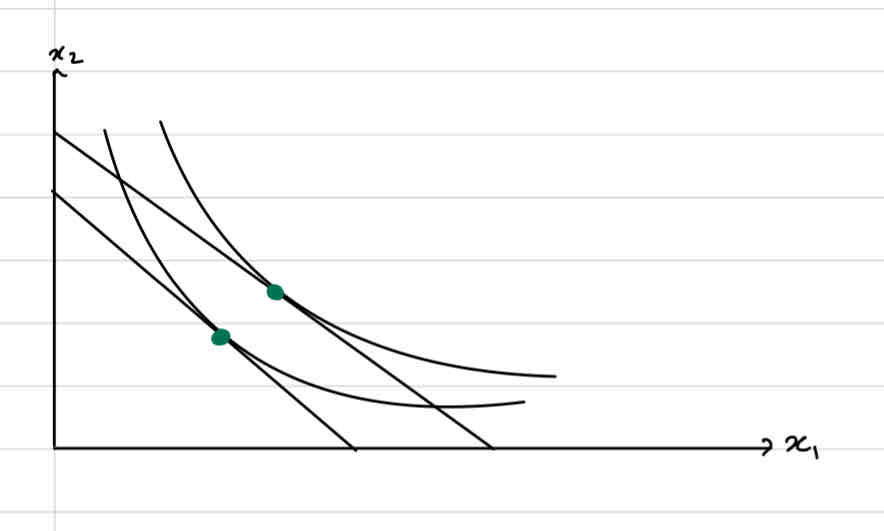
For what type of preferences are goods normal at every level
Cobb Douglas
Inferior goods
Income dec => demand dec (in that income range)
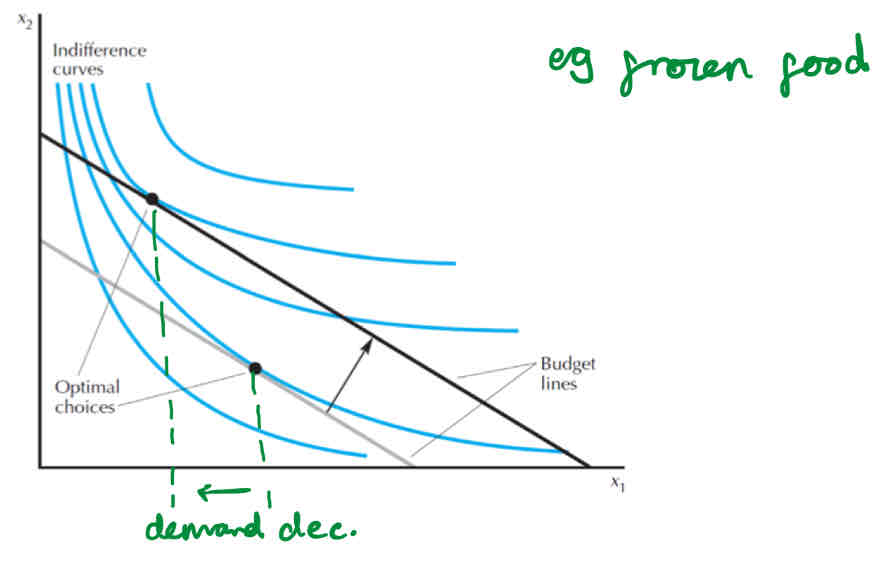
Ordinary goods
X1* goes down when P1 goes up
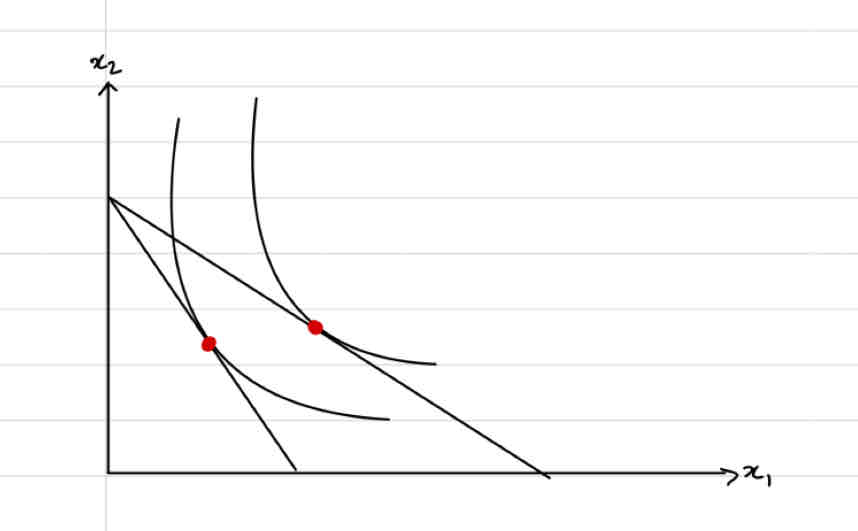
Giffen good
X1* goes up when P1 goes up
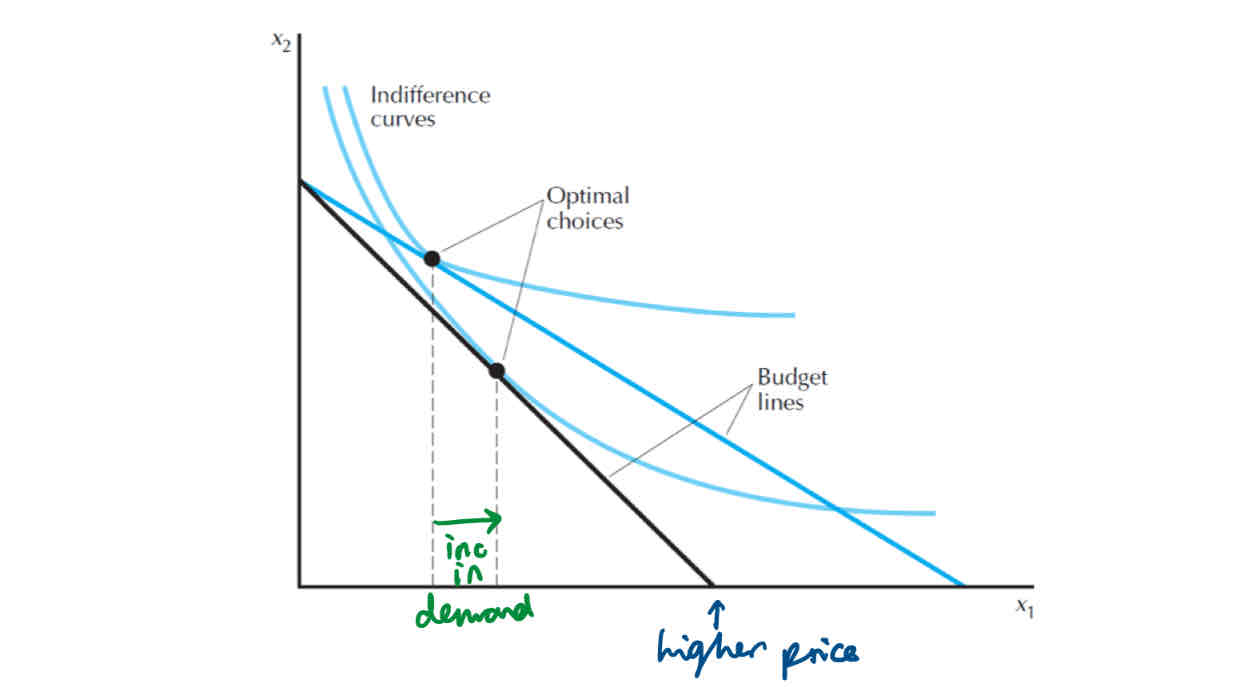
If giffen good normal or inferior, prove why
Inferior
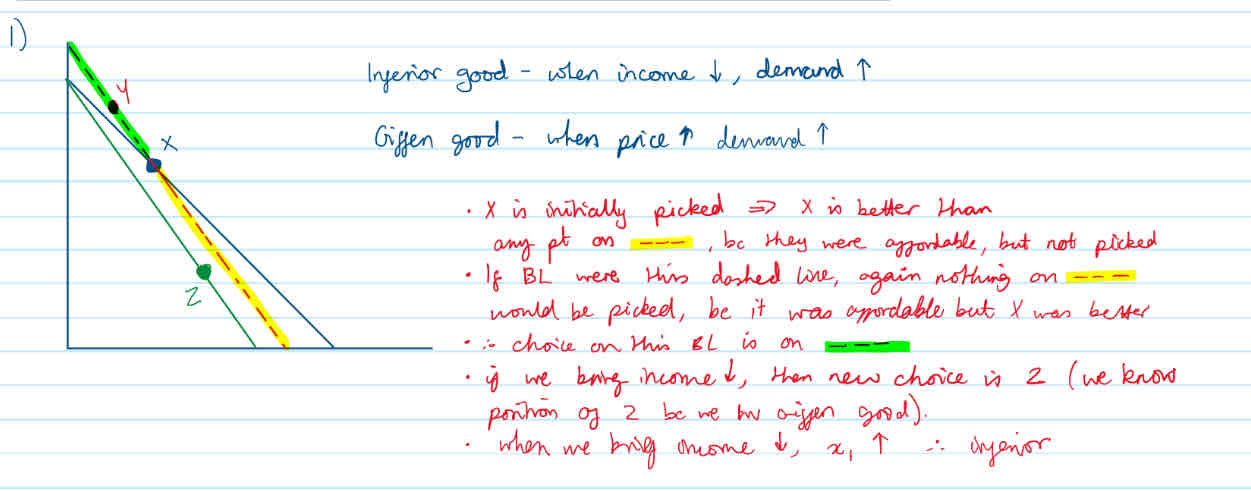
If preferences are quasi linear, where x2 is linear, how does the income effect change consumption of x1, draw graph
No change to consumption of x1, as all IC’s are vertical shifts of each other
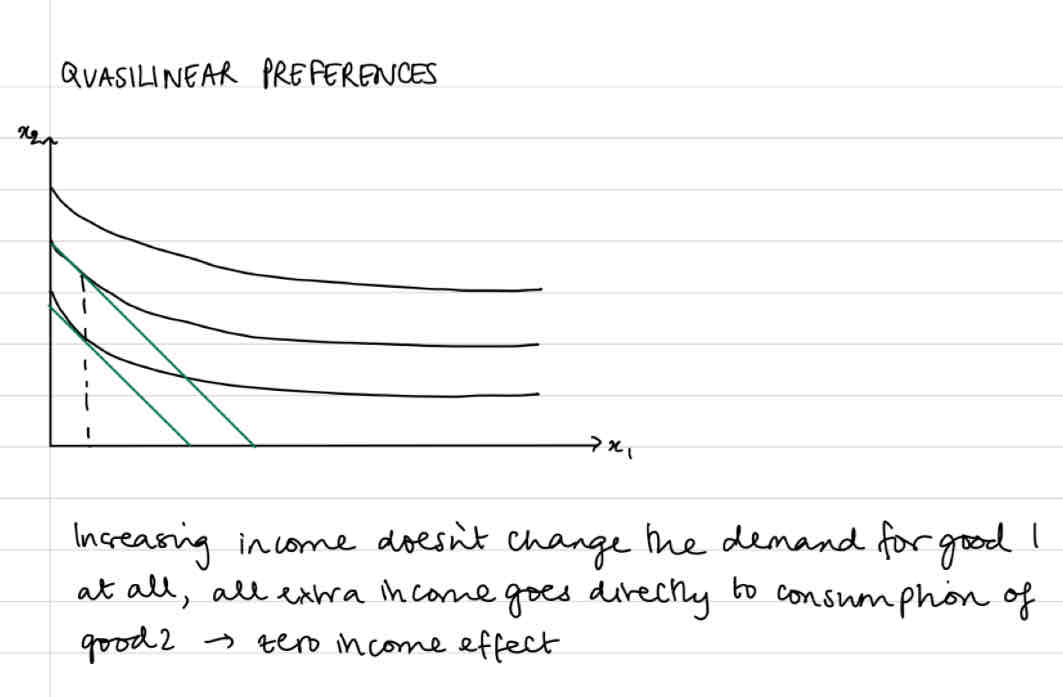
Cross price effect: when is a good a substitute

Cross price effects: when is a good a complement

What is the substitution effect, how does utility change
when price of x1 falls, it becomes relatively cheaper
Hence becomes relatively more attractive
Consumers rate of sub between the two goods will increase to consume more x1 relative to x2
Utility doesn’t change when this effect is in play
What is the income effect, how does utility change
when price of x1 falls, even if M constant, budget set becomes bigger and effectively more PURCHASING POWER
Utility should increase
Slutsky decomposition steps, draw pic
1) remove income effect by decreasing M such that new BL goes through initial bundle (still spends all money but doesn’t feel wealthier)
2) if this was the new BL, wld choose Y not X, hence sub effect from X to Y
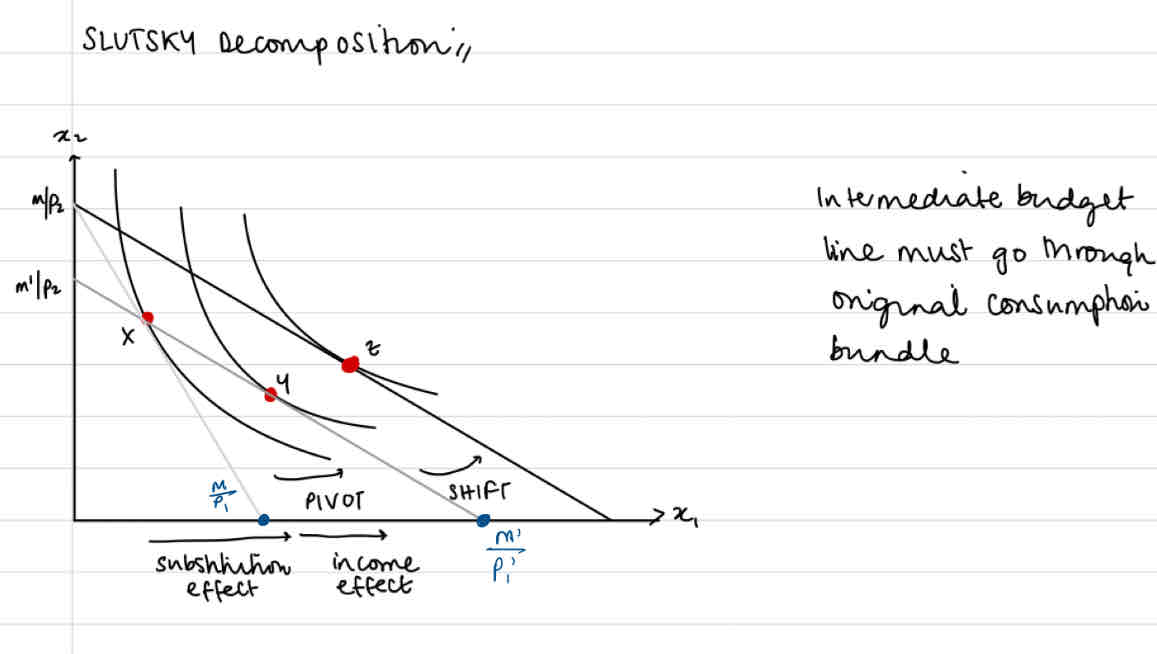
Slutsky substitution equation
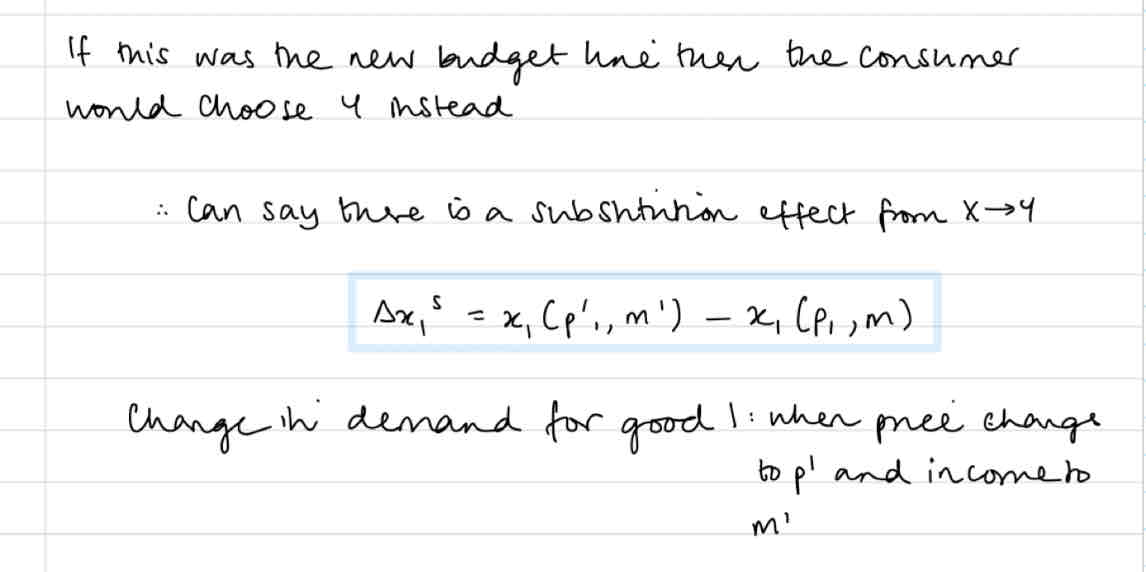
Slutsky income effect equation
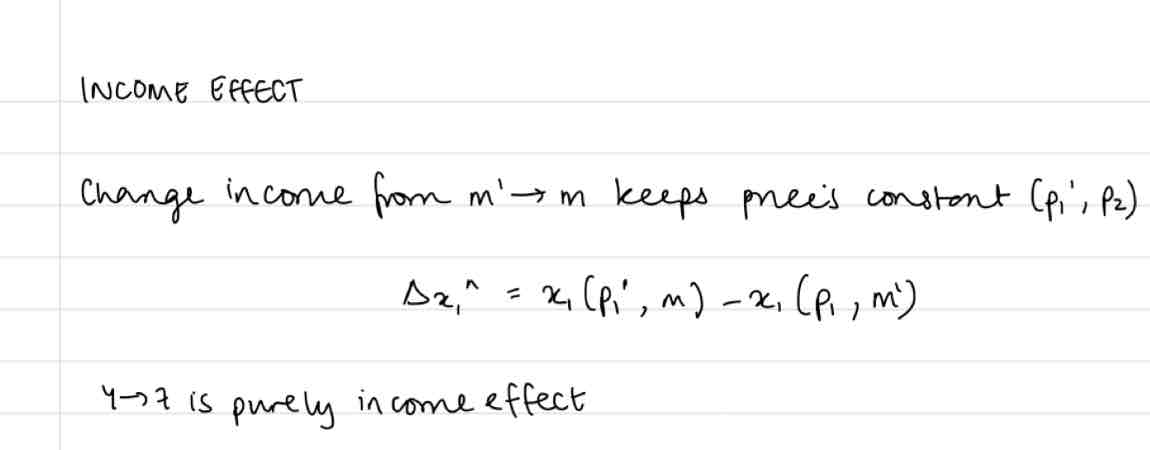
Slutsky identity
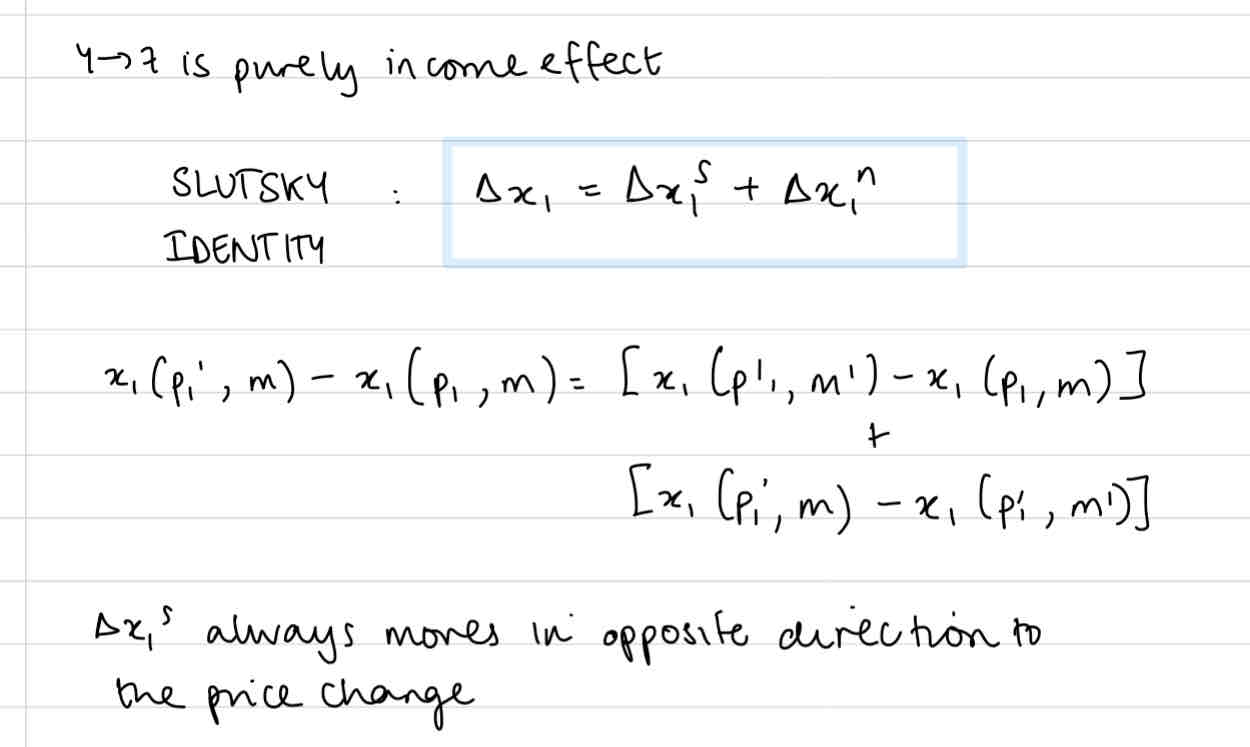
Sign of sub effect
Always opp to price change
Sign of income effect
Depends on if good normal Or inferior
If normal - opp sign to price change
If inferior - same sign to price change
Income and sub effects on normal good
Both same way (both opp to price change)
Income and sub effects on inferior good, total effect?
Opposite directions, total effect depends on whcih dominates
I&S effects on perfect complements
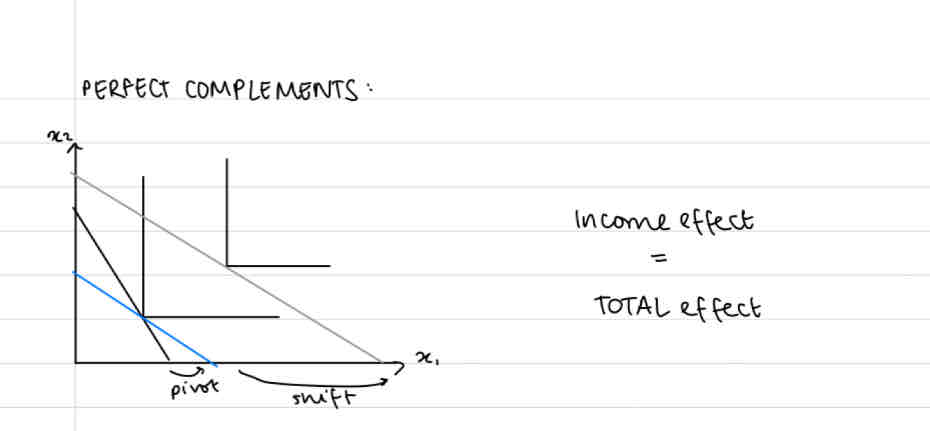
I&S effects on perfect substitutes
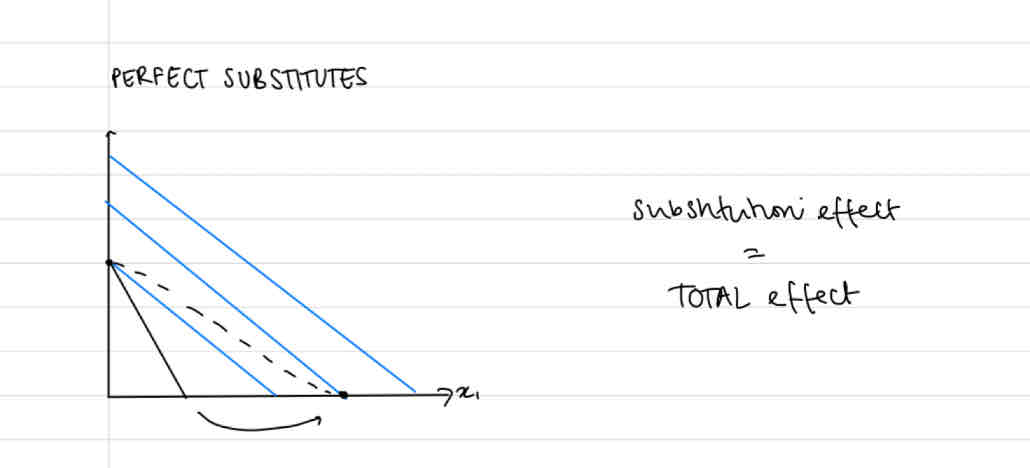
I&S effects on quasilinear preferences
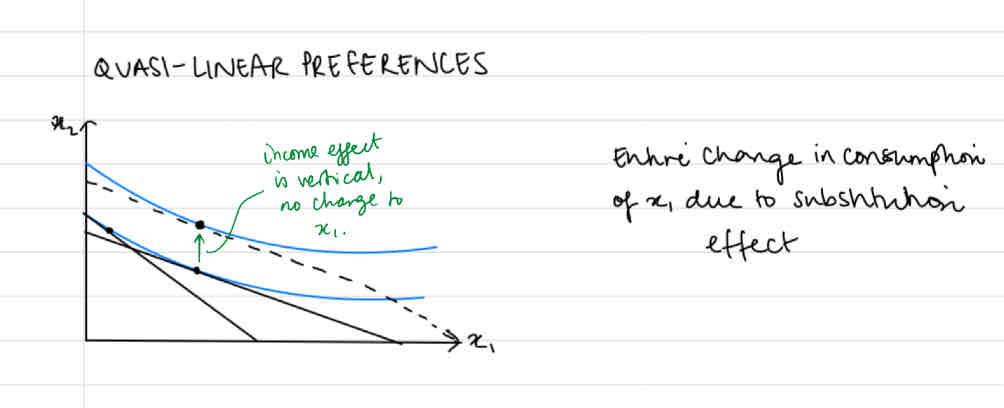
Why does hicks disagree w Slutsky
Argues that pure substitution effect should not increase consumers welfare (ie new IC should not be able to be reached)
But Slutsky bundle Y makes consumer better off
Hicks decomposition
remove income effect by decreasing M such that on same IC as original choice - same U
The new point where BL is tangent to original IC is the sub effect
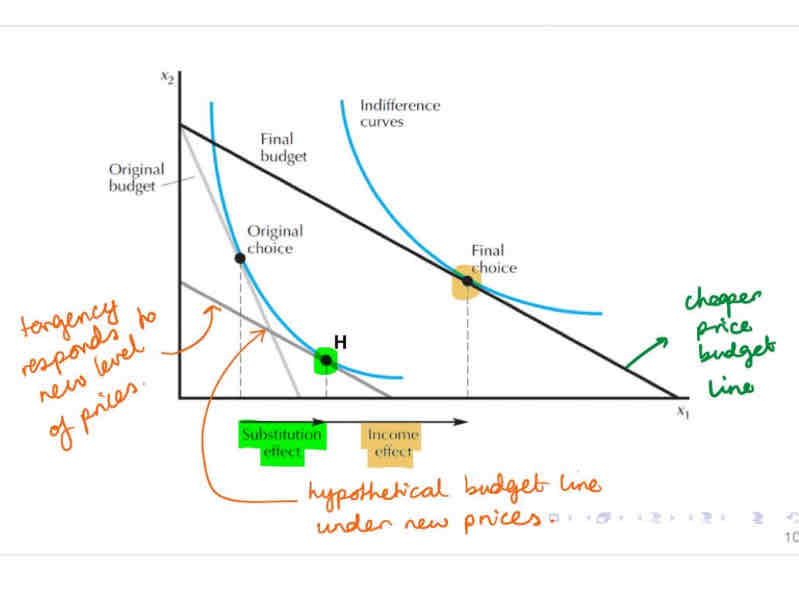
Compensated demand
what consumer chooses with HYPOTHETICAL income and new prices (hyp income is diff for Slutsky vs hicks therefore so is compensated demand)
Original choice - compensated demand = sub effect
Difference between Slutsky and hicks
difference in how they view compensated demand needed to isolate sub effect
Slutsky - compensate income so consumer can j afford original choice
Hicks - compensate consumer so they can stay on same IC